![Medicine - Cancer Biology E-Newsletter [Vanderbilt University]](https://cdn.vanderbilt.edu/vu-URL/wp-content/uploads/sites/119/2017/11/19151037/cancer-biology-design-004.png)
|
|
April 2024
|
|

April brings beauty and the unveiling of Spring, and also a time for the dissertation defense for many of our outstanding graduate students. So far, we have seen Brandie Taylor (Balko Lab), Brad Davidson (Park Lab), Melissa Wolf (Rathmell Lab), Ariana Von Lersner (Weaver and Zjilstra Labs) and Alexander Silver (Savona Lab) who have successfully defended their dissertations this year. In addition, we have a number of students planning to defend their dissertations this summer. We are very fortunate to have so many strong students in our program and appreciate all they have given to the CBSA and other students during the course of their time with us! We wish them all continued success as they move to postdoctoral and other positions. Brad, Ariana, and Brandie have given extraordinary service to the CBSA in recent years and we will really miss their leadership.
We look forward to welcoming our new students into the Program with a special “Welcoming Event” on May 31 that promises to be exceptional, so stay tuned and put this on your calendar.
 We want to congratulate Justin Balko for his promotion to Professor of Medicine and Kim Rathmell on her new position as Director of the NCI. While Kim cannot currently be an active member of our faculty, she is welcome back anytime that the political winds change in Washington! In addition, it is with sadness that we will be losing Vito Quaranta who is retiring from Vanderbilt in June. Vito has made significant contributions to our Program over the years and will be greatly missed. We want to congratulate Justin Balko for his promotion to Professor of Medicine and Kim Rathmell on her new position as Director of the NCI. While Kim cannot currently be an active member of our faculty, she is welcome back anytime that the political winds change in Washington! In addition, it is with sadness that we will be losing Vito Quaranta who is retiring from Vanderbilt in June. Vito has made significant contributions to our Program over the years and will be greatly missed.
Ann Richmond, PhD
The Program in Cancer Biology celebrates our newest PhD’s

Brad A Davidson, PhD
(Park Lab)
Brad successfully defended his dissertation, and his research has been published in Nature Publishing Group, the Journal of Communication Biology: An in vitro CRISPR screen of cell-free DNA identifies apoptosis as the primary mediator of cell-free DNA release. We also want to thank Brad for his leadership as the Executive Chair of the Program in Cancer Biology Student Association. Your hard work here at Vanderbilt has been very valuable! We wish you much success on your scientific journey Dr. Davidson!
Brandie Taylor, PhD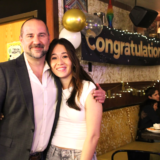
(Balko Lab)
Brandie successfully defended her dissertation, and we wish you success in your future career; we will miss you here at Vanderbilt! Dr. Taylor’s research was recently published in Cancer Discovery: NKG2A is a Therapeutic Vulnerability in Immunotherapy-Resistant MHC-I Heterogeneous Triple-Negative Breast Cancer.
Also, Brandie recently represented Tennessee by spending a day on the Hill to support the National Cancer Institute (NCI) funding! She was grateful to have met with TN Senators Marsha Blackburn and Bill Hagerty.
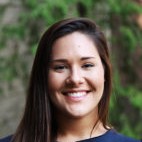
Ariana von Lersner, PhD
(Weaver and Zijlstra Labs)
Dr. von Lersner is very excited to share her research that was published in ACS Nano: Multiparametric Single-Vesicle Flow Cytometry Resolves Extracellular Vesicle Heterogeneity and Reveals Selective Regulation of Biogenesis and Cargo Distribution. Ariana’s interest in technology and biology intersect for the culmination of this work. Ariana would like to thank her collaborators across Vanderbilt, Genentech, and Cedars-Sinai Medical Center for their contributions, as well as her mentors, Andries Zijlstra and Alissa Weaver!
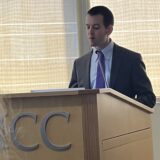
Alexander Silver, PhD
(Savona Lab)
Dr. Silver successfully defended his dissertation research published in Clinical Cancer Research: Combining Insights from Big Data and Gene Editing Techniques to Refine Gene and Residue-Level Implications of Clonal Hematopoiesis Mutations. Alex will continue at Vanderbilt to finish his final year of medical school in May before starting the application process for a pathology residency. Dr. Silver aims to stay in academia as a physician-scientist running a translational research lab. For now, Alex will be taking a well-deserved vacation to celebrate with his wife and daughter in the Smokey Mountains. They are looking forward to doing some hiking and exploring Knoxville on the way.
Program in Cancer Biology Research and News
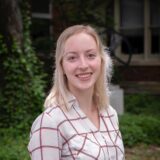
KayLee Steiner
(J Rathmell Lab)
KayLee had a wonderful time traveling to Ireland and attending the Keystone Symposia on Molecular and Cellular Biology Conference, Immunometabolism: From Mechanisms to Pathways to Therapies. KayLee wishes to thank the Cancer Biology program at Vanderbilt for granting a travel award to aid in attending this conference! KayLee was able to present her poster and thesis project on “Mitochondrial Fatty Acid Synthesis in T cells”. She received valuable feedback from leaders in the immunometabolism field that will help her design and execute important experiments.
KayLee’s former mentor, Dr. Andre Hudson, invited her back to the Rochester Institute of Technology (RIT) to give a seminar on her thesis project and advice for graduate school students. Dr. Hudson stated, “It’s always a joy having our RIT College of Science alums back to inspire our current scholars. KayLee Steiner is a 4th year PhD Scholar at Vanderbilt University. Her visit was extra special for me as she is an alum of my lab. Keep up the great work, KayLee. We are very proud of you! ” invited her back to the Rochester Institute of Technology (RIT) to give a seminar on her thesis project and advice for graduate school students. Dr. Hudson stated, “It’s always a joy having our RIT College of Science alums back to inspire our current scholars. KayLee Steiner is a 4th year PhD Scholar at Vanderbilt University. Her visit was extra special for me as she is an alum of my lab. Keep up the great work, KayLee. We are very proud of you! ”
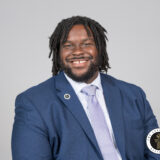
Logan Northcutt
(Rhoades and Rafat Lab)
Logan has been selected to participate in the 2024 Catalyzing Advocacy in Science and Engineering workshop. This year, the AAAS Case workshop will be in Washington, DC. This opportunity is a partnership with the Office of Federal Relations, the BRET Office of Career Development ASPIRE Program, and the Graduate School.
Julia Steele
(Balko Lab)
Julia presented her research at the Vanderbilt Cancer Center’s HTIP and TRIO 2nd annual retreat. Julia and her team are investigating Anti-HER2 antibody drug conjugates that have shown remarkable success in treating both HER2-enriched and HER2-low breast cancer. Despite their clinical success, there is a clear translational gap between preclinical data and clinical results due to a paucity of existing models. This stems from the fact that trastuzumab, the antibody backbone of the 2 FDA approved anti-HER2 ADCs, does not bind to rodent Her2, limiting preclinical investigations of ADC function, immune interaction, toxicity, and resistance. To address this issue, the team has generated a chimeric murine Her2 receptor that is capable of binding to trastuzumab while maintaining the murine Her2 backbone sequence. In vivo, the chimeric Her2 tumor model avoided growth suppression and immunologic selection and further studies confirmed the model is highly sensitive to anti-HER2 ADC treatment. The labs results support the chimeric Her2 tumor model as a rigorous system that will allow for more in depth and translatable preclinical studies of anti-HER2 ADC mechanism of action.
|
|
RECENT VANDERBILT FACULTY AND TRAINEES PUBLICATIONS:
Lactate Utilization Enables Metabolic Escape to Confer Resistance to BET Inhibition in Acute Myeloid Leukemia. Cancer Res. 2024 Apr 1;84(7):1101-1114. Haley Ramsey, Alexander Silver, Jeffrey Rathmell, Michael Savona, et al.
Multiparametric Single-Vesicle Flow Cytometry Resolves Extracellular Vesicle Heterogeneity and Reveals Selective Regulation of Biogenesis and Cargo Distribution. ACS Nano. 2024 Apr 5. Von Lersner AK, Sung BH, Wilson JT, Irish JM, Weaver AM, Zijlstra A. et al.
A Cancer Nanovaccine for Co-Delivery of Peptide Neoantigens and Optimized Combinations of STING and TLR4 Agonists. ACS Nano. 2024 Mar 5;18(9):6845-6862. Bharti V, Joyce S, Wilson JT, et al.
Cell-type-specific and disease-associated expression quantitative trait loci in the human lung. Nat Genet. 2024 Mar 28. Flaherty DK, Blackwell TS, et al.
The mitochondrial fission protein DRP1 influences memory CD8+ T cell formation and function. J Leukoc Biol. 2024 Mar 29;115(4):679-694. Stevens MG, Mason FM, et al.
Multiomic Profiling of Human Clonal Hematopoiesis Reveals Genotype and Cell-Specific Inflammatory Pathway Activation. Blood Adv. 2024 Mar 20. Heimlich JB, Bhat P, Silver AJ, Savona MR, Bick AG, Ferrell PB Jr, et al.
Tumor therapy by targeting extracellular hydroxyapatite using novel drugs: A paradigm shift. Cancer Med. 2024 Feb;13(3):e6812. Tantawy MN, McIntyre JO, Yull F, Rhoades J, McCawley LJ, Fingleton B, et al.
Polygenic risk score for ulcerative colitis predicts immune checkpoint inhibitor-mediated colitis. Nat Commun. 2024 Mar 26;15(1):2568. Johnson DB, Lovly CM, Balko JM, Aldrich MC, et al.
The Hallmarks of Precancer. Cancer Discov. 2024 Apr 4;14(4):683-689. Glass SE, Coffey RJ, Lau KS, et al.
Vaccination generates functional progenitor tumor-specific CD8 T cells and long-term tumor control. bioRxiv [Preprint]. 2024 Feb 29:2024. Detrés Román CR, Roetman JJ, Philip M, et al.
PTHrP intracrine actions divergently influence breast cancer growth through p27 and LIFR. Breast Cancer Res. 2024 Feb 26;26(1):34. Edwards CM, Kane JF, Smith JA, Grant DM, Karno BA, Johnson RW, et al.
Distinct roles for interleukin-23 receptor signaling in regulatory T cells in sporadic and inflammation-associated carcinogenesis. Front Oncol. 2024 Feb 5;13. Jacobse J, Pilat JM, Li J, Brown RE, Choksi YA, Williams CS, Markham NO, Short SP, Goettel JA, et al.
Atezolizumab in Combination With Carboplatin and Survival Outcomes in Patients With Metastatic Triple-Negative Breast Cancer: The TBCRC 043 Phase 2 Randomized Clinical Trial. JAMA Oncol. 2024 Feb 1;10(2):193-201. Lehmann BD, Abramson VG, Habing An, Gonzalez-Ericsson PI, Sanders ME, Abramson RG, Shyr Y, Pietenpol JA, et al.
Transcriptomic analysis of benign prostatic hyperplasia identifies critical pathways in prostatic overgrowth and 5-alpha reductase inhibitor resistance.
Prostate. 2024 Apr;84(5):441-459. Jin R, Forbes CM, Miller NL, Case T, Cates JM, Liu Q, Ramirez-Solano M, Mohler JL, Matusik RJ, et al.

CONFERENCES OF INTEREST:
2024 VCSCB Symposium- Emerging Technologies for Stem Cell Biology. May 16, 2024, 8:30 am. Wilson Hall Auditorium and Lobby. Register here.
25th Annual VICC Scientific Retreat- Hereditary Cancers. May 21, 2024, Vanderbilt Student Life Center. Register here.
International Conference on Systems Biology of Human Disease. The Advent of Artificial Intelligence. June 10-12, 2024. Vanderbilt Student Life Center. Register here.
FOCIS 2024 Annual Meeting. June 18-21, 2024. San Francisco, CA. Register here.
CABS (Cancer and Bone Society) meeting will be July 12-14, 2024 in Sheffield, England.
SEMINAR SERIES:
VICC Seminar series
VI4 Seminar Series

|
|

Chris Williams, MD, PhD, associate dean for Physician-Scientist Education and Training at Vanderbilt University, has been named to lead Research Education at Vanderbilt-Ingram Cancer Center (VICC).
Williams began his medical training at Vanderbilt in the MSTP, followed by his internal medicine residency and gastroenterology fellowship as a Harrison Society Scholar. His research portfolio is focused on intestinal injury response/repair programs to understand how epithelial integrity programs are perturbed in the pathogenesis of inflammatory bowel disease and the progression to malignancy. Williams succeeds Scott Hiebert, PhD, Hortense B. Ingram, Professor of Cancer Research and Biochemistry. Hiebert will continue to serve as associate director for Shared Resources at VICC.

Verra Ngwa-Neba, PhD
(Chen and Rathmell Lab)
Dr. Ngwa received her PhD from Vanderbilt University in Cancer Biology. Post graduation, an exciting new opportunity became available in the Chen and Rathmell laboratories. Dr. Chen’s lab has shown that mTORC2 is critical in regulating metabolism in lung squamous carcinoma (LUSC), which affects antitumor immune responses in vivo. However, the mechanism by which cancer metabolism regulates tumor sensitivity to immunotherapies in LUSC is unknown. Dr. Rathmell’s lab developed a series of sgRNA libraries against genes encoding metabolic enzymes and transporters and has collaborated with Dr. Chen on investigating the mechanisms of breast cancer metastasis. Learning about this opportunity, which was too good to skip, Verra put together a proposal to investigate the sensitivity or resistance of LUSC tumors to adoptive T-cell therapy. The AACR-Lung Cancer Initiative funded the proposal at Johnson & Johnson Stimulating Therapeutics Advances through Research Training (START) Grants. This three-year fellowship will permit Dr. Ngwa to perform research at VUMC for two years and at a Johnson & Johnson facility during her third year. During the research year at Johnson & Johnson, Dr. Ngwa will be paired with a J&J scientist who will serve as her mentor.
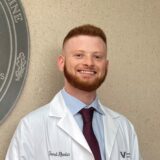
Jared Rhodes
(Goldenring Lab)
Jared is incredibly excited to announce he is now an NSF GRFP Fellow! The 2024 National Science Foundation (NSF) Graduate Research Fellowship will offer three years of research support which will be paid for through the academic institution. Jared also won first place in the poster competition at the Vanderbilt Digestive Disease Research Center Retreat and the Cancer Biology Retreat, where he identified potential secreted factors that promote metaplasia to dysplasia transition in the stomach from his work in the Goldenring’s lab.

Ebony Hargrove-Wiley
(Fingleton Lab)
To advance her leadership skills, Ebony has chosen to participate in the Business and Management Principles for Scientists module facilitated by the Vanderbilt University Graduate School BRET office. This semester-long initiative comprised a series of weekly educational sessions curated to delve into business facets such as operational strategies, personnel dynamics, and program administration under the guidance of Joseph Rando. This endeavor involved a practical assignment wherein participants were tasked with identifying, rigorously evaluating, and providing solutions for a business challenge posed by Dr. Jenny Schafer of The Vanderbilt Core Exchange. This hands-on exercise exposed Ebony to essential concepts for managing a team and navigating organizational complexities.
 Richard Peek, MD, Professor of Medicine (Gastroenterology, Hepatology and Nutrition) – Charles R. Park Award for Basic Research Revealing Insights into Physiology and Pathology. Richard Peek, MD, Professor of Medicine (Gastroenterology, Hepatology and Nutrition) – Charles R. Park Award for Basic Research Revealing Insights into Physiology and Pathology.
Dr. Peek was honored at the Vanderbilt University School of Medicine Spring Faculty Meeting for his excellence in teaching, research and clinical care!! Thank you for your expertise as a mentor and all you do for our science community.
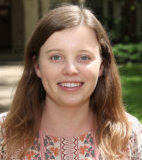
Kara McNamara
(Wilson Lab)
Kara was one of fourteen biomedical sciences graduate students to receive the 2024 Provost Pathbreaking Discovery Awards. This $2,500 award recognizes doctoral students who exhibit exceptional academic excellence in publications, awards, patents, and other forms of national or international distinction. She was nominated by the Office of Biomedical Research Education and Training, which provides support and resources for Vanderbilt biomedical science graduate students, postdoctoral fellows, and faculty who train graduate students and postdocs. “The dedication and innovation of these award winners are exemplary, epitomizing the spirit of research we cultivate here,” said Walter Chazin, senior associate dean for BRET, Chancellor’s Professor of Medicine, and professor of biochemistry and chemistry. “Their work reflects academic excellence and signals a promising future of scholarly discovery.” Congratulations Kara!
 The new Linda Sealy, Emerging Scholar Travel Award celebrates the scientific relationship between a mentor and trainee pair by providing them $4,000 to attend a national conference in the trainee’s research field. The award, established with funds provided by the Howard Hughes Medical Institute (HHMI) Gilliam Fellows Program, the Vanderbilt School of Medicine Basic Sciences, and the Department of Cell and Developmental Biology, accepts applications through July 1. “Linda Sealy’s tireless efforts to promote diversity, equity, and inclusion have profoundly impacted our institution. Her mentorship and leadership have been instrumental in cultivating an environment that supports and empowers individuals from diverse backgrounds to thrive in STEM,” said Vivian Gama, associate dean for equity and inclusive mentoring and associate professor of cell and developmental biology. “The Linda Sealy Emerging Scholar Travel Award is a fitting tribute that will help continue her legacy of building a more inclusive scientific community.” Apply here The new Linda Sealy, Emerging Scholar Travel Award celebrates the scientific relationship between a mentor and trainee pair by providing them $4,000 to attend a national conference in the trainee’s research field. The award, established with funds provided by the Howard Hughes Medical Institute (HHMI) Gilliam Fellows Program, the Vanderbilt School of Medicine Basic Sciences, and the Department of Cell and Developmental Biology, accepts applications through July 1. “Linda Sealy’s tireless efforts to promote diversity, equity, and inclusion have profoundly impacted our institution. Her mentorship and leadership have been instrumental in cultivating an environment that supports and empowers individuals from diverse backgrounds to thrive in STEM,” said Vivian Gama, associate dean for equity and inclusive mentoring and associate professor of cell and developmental biology. “The Linda Sealy Emerging Scholar Travel Award is a fitting tribute that will help continue her legacy of building a more inclusive scientific community.” Apply here
Our very own Keith Wilson, MD has been named as a fellow by the American Association for the Advancement of Science! This is a great accomplishment for many years of outstanding research. 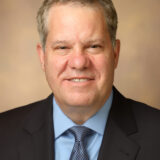
Dr. Wilson is the Thomas F. Frist Sr. Chair in Medicine and professor of medicine, studies gastrointestinal mucosal inflammation and how that leads to cancer development. AAAS cited his distinguished contributions to the field of biomedical research, particularly using cellular and animal model systems, and conducting translational research to understand gastrointestinal inflammation and carcinogenesis as the reasons he was elected as a fellow. “Recognition as 2023 AAAS fellows highlights the remarkable impact and innovation of Drs. in their respective fields,” said Donald Brady, executive vice dean for academic affairs at the School of Medicine. “This esteemed honor not only underscores their commitment to advancing medical science but also reaffirms our School of Medicine’s role at the forefront of global health research and education.”
 Fibrosis is an all-too-common medical condition that globally is responsible for 800 million cases of chronic kidney disease and two million deaths from chronic liver diseases each year. Ambra Pozzi, PhD, and colleagues report in The Journal of Clinical Investigation that levels of nuclear FUS are significantly increased in mouse models of injury-induced kidney and liver fibrosis and that less fibrosis occurs when a genetic mutation or cell-penetrating peptide blocks the transport of FUS into the nucleus. Read More Fibrosis is an all-too-common medical condition that globally is responsible for 800 million cases of chronic kidney disease and two million deaths from chronic liver diseases each year. Ambra Pozzi, PhD, and colleagues report in The Journal of Clinical Investigation that levels of nuclear FUS are significantly increased in mouse models of injury-induced kidney and liver fibrosis and that less fibrosis occurs when a genetic mutation or cell-penetrating peptide blocks the transport of FUS into the nucleus. Read More
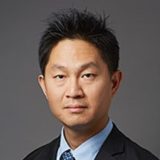 Tae Kon Kim, MD, PhD, and colleagues published in The Journal of Clinical Investigation that overexpression of VISTA promoted the growth of AML cells, mainly by evading T-Cell immune responses. In mouse models, they discovered that the ablation of VISTA molecules on T cells by either antibody blockade or genetic knockout significantly inhibited AML progression by promoting T cell activity. Read More. Tae Kon Kim, MD, PhD, and colleagues published in The Journal of Clinical Investigation that overexpression of VISTA promoted the growth of AML cells, mainly by evading T-Cell immune responses. In mouse models, they discovered that the ablation of VISTA molecules on T cells by either antibody blockade or genetic knockout significantly inhibited AML progression by promoting T cell activity. Read More.
 In people with cancer, tumor-specific CD8+ T cells become dysfunctional, or too “exhausted” to carry out their role in destroying malignant cells, leaving them to proliferate. While it’s been thought that these immune cells creep into a state of exhaustion between days and weeks after encountering a tumor, a recent publication in Nature Immunology from Mary Philip, MD, PhD, reveals that CD8+ T cell exhaustion occurs much more quickly – within a matter of hours. Read More. In people with cancer, tumor-specific CD8+ T cells become dysfunctional, or too “exhausted” to carry out their role in destroying malignant cells, leaving them to proliferate. While it’s been thought that these immune cells creep into a state of exhaustion between days and weeks after encountering a tumor, a recent publication in Nature Immunology from Mary Philip, MD, PhD, reveals that CD8+ T cell exhaustion occurs much more quickly – within a matter of hours. Read More.
The NIH has announced new review guidelines for fellowships, beginning January 25, 2025. Please note that this will impact your trainees applying for NIH F30 or F31 awards. A link to the revised guidelines and review criteria is here, https://grants.nih.gov/grants/guide/notice-files/NOT-OD-24-107.html
 Have you received an award, a paper published or any other good news you would like to celebrate with our community? If so, please e-mail: kerry.w.vazquez@vanderbilt.edu. Newsletter header photo credit to Dr. Anna Vilgelm, “DNA Comets.” Articles and Pictures credit to VU and VUMC. All other photo credit to unsplash. Have you received an award, a paper published or any other good news you would like to celebrate with our community? If so, please e-mail: kerry.w.vazquez@vanderbilt.edu. Newsletter header photo credit to Dr. Anna Vilgelm, “DNA Comets.” Articles and Pictures credit to VU and VUMC. All other photo credit to unsplash.
|
|
|
Vanderbilt University is committed to principles of equal opportunity and affirmative action.
Vanderbilt®, Vanderbilt University®, V Oak Leaf Design®, Star V Design® and Anchor Down® are trademarks of The Vanderbilt University. ©2024 Vanderbilt University. All rights reserved.
|
|
![Medicine - Cancer Biology E-Newsletter [Vanderbilt University]](https://cdn.vanderbilt.edu/vu-URL/wp-content/uploads/sites/119/2017/11/19151037/cancer-biology-design-004.png)